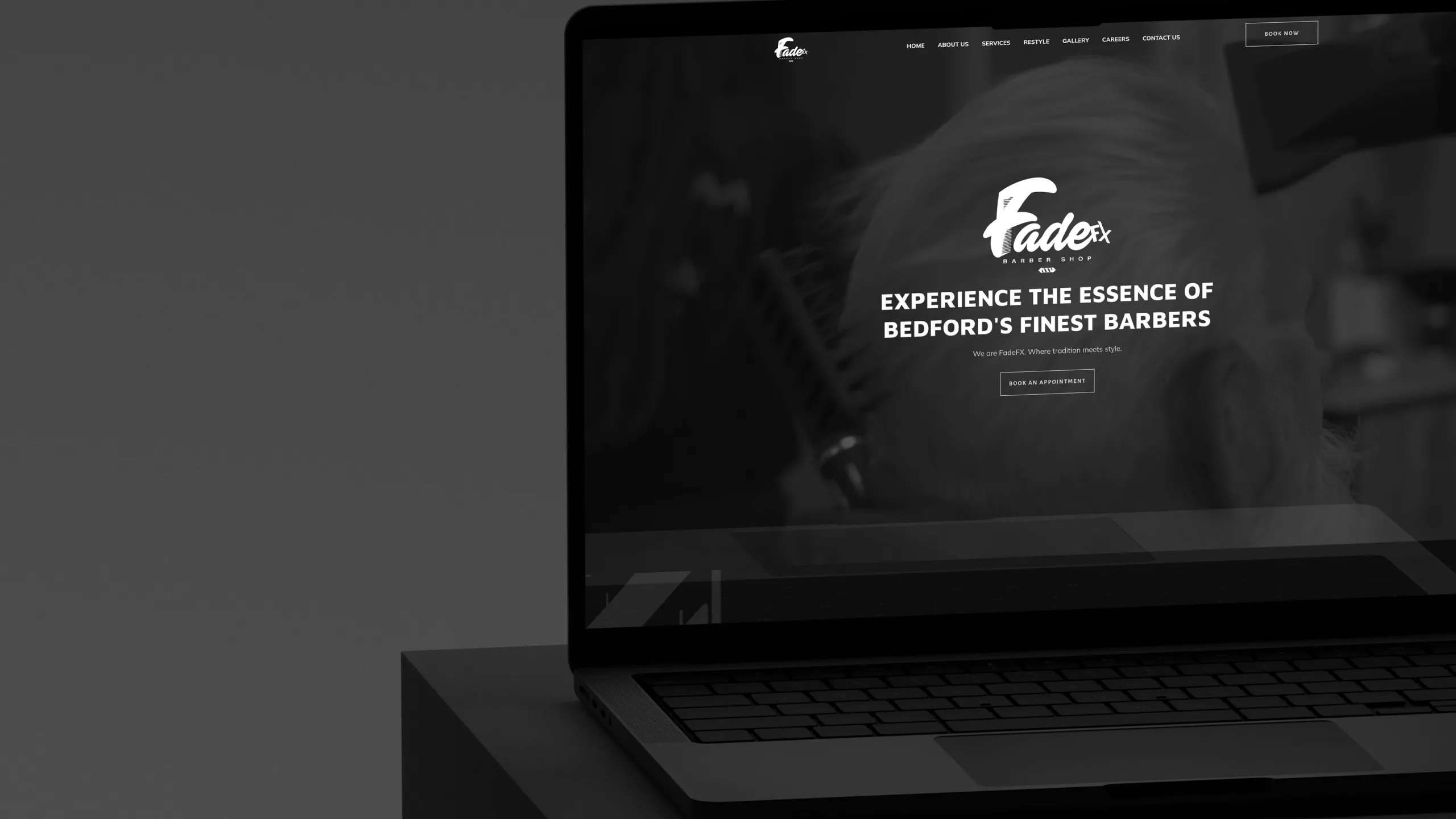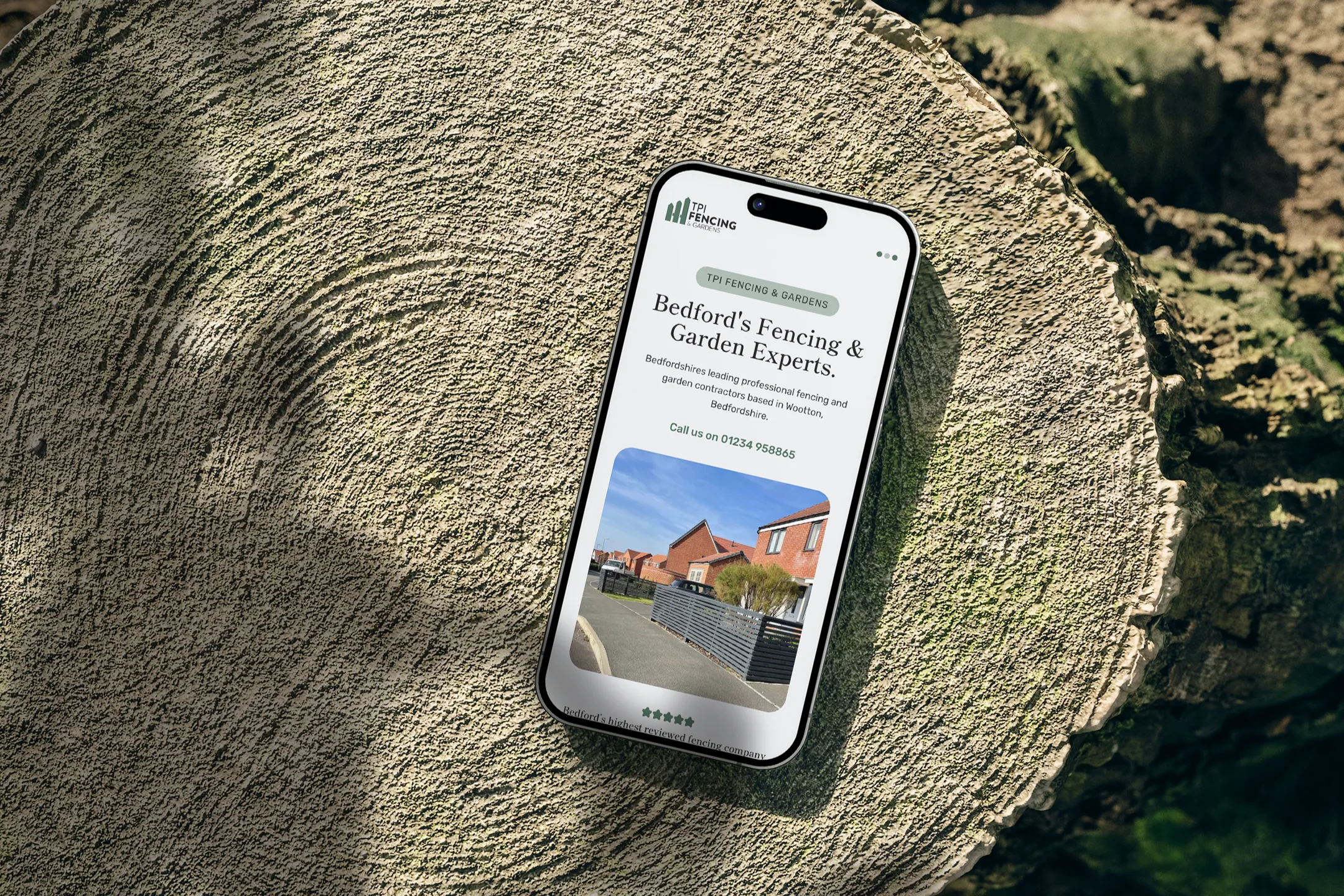Web Design & Development in Bedfordshire
Bring your brand to life online with a bespoke website that boosts engagement and brings a return on creativity.

Beautiful Websites That Break The Mould.
Your website’s your opportunity to stand out. So why settle for something bland?
At Propelio, our clients benefit from stunning sites that are carefully crafted and custom-made by some of the industry’s leading artistic minds.
We begin the design journey with a series of discovery sessions, absorbing ourselves in your brand and industry to make sure your website resonates with customers and reinforces your key message.
As your dedicated web design agency, you can depend on our award-winning team to create a digital experience that inspires action. Drawing inspiration from different mediums, we’ll design your website to leave a lasting impression on your audience.
What makes us propel at web design?
Bespoke
We are creatives at heart, and it shows. Your new website will be hand-crafted to create a one-of-a-kind website that breaks industry stereotypes.
Seamless
We combine creativity with a deep understanding of user needs to deliver meaningful and relevant digital experiences.
Thoughtful
We’ll draw on insights from discovery workshops to make informed decisions on the user journeys, content hierarchy and sitemaps.
Impactful
Your website’s the centrepiece of your visual identity. We make every click count through creative design and UX that converts.
FAQ's
Why is having a professional website important for my busines?
Having a professional website is important for several reasons:
- Credibility: A well-designed website creates a positive first impression and builds trust with potential customers.
- Online Presence: A website allows your business to have an online presence, making it easier for people to find and learn about your products or services.
- Customer Convenience: A website provides convenience for customers as they can access information about your business anytime, from anywhere.
- Marketing and Sales: A website serves as a marketing and sales tool, allowing you to showcase your offerings, generate leads, and convert visitors into customers.
What should I consider when designing a website?
- Purpose and Goals: Define the purpose of your website and set clear goals for what you want to achieve (e.g., lead generation, e-commerce sales, brand awareness).
- Target Audience: Understand your target audience’s demographics, preferences, and needs to tailor the design and content accordingly.
- User Experience: Focus on creating a user-friendly website with intuitive navigation, fast loading times, and mobile responsiveness to ensure a positive experience for visitors.
- Branding and Visual Appeal: Incorporate your brand elements, such as logo, colours, and typography, to create a cohesive and visually appealing design that aligns with your brand identity.
- Content Strategy: Develop a content strategy that includes compelling and relevant content, optimised for search engines, to engage visitors and drive conversions.
How much does a website design cost?
The cost of website design can vary depending on several factors, such as the complexity of the design, number of pages, functionality requirements, and the experience of the web design agency or professional. On average, a basic small business website can cost between £1,500 to £5,000, while more complex websites with custom features or e-commerce capabilities can range from £5,000 to £20,000 or more. It’s important to discuss your specific needs with web designers to get an accurate quote.
How long does it take to design and launch a website?
The time to design and launch a website depends on the scope of the project and various factors, including the complexity of the design, the number of pages, content preparation, and client feedback turnaround time. A basic website can take around 4-6 weeks to complete, while larger and more complex projects can take several months. It’s important to work closely with your web design team and establish clear timelines and milestones to ensure a smooth and timely process.
Should I hire a professional website design agency or do it myself?
Whether to hire a professional web design agency or do it yourself depends on several factors, including your budget, expertise, and time availability. Hiring a professional agency brings the advantage of their experience, expertise, and access to a team of designers, developers, and marketers who can create a high-quality website tailored to your business needs. If you have the necessary skills and resources, you can choose to design it yourself using website builders or content management systems, but keep in mind that a professionally designed website can have a significant impact on your online presence and business success.
What features and functionality should I consider for my website?
The features and functionality you should consider for your website depend on your business requirements and goals. However, some common elements include:
- Responsive Design: Ensuring your website looks and functions well on various devices (desktop, mobile, tablet).
- Contact Information and Forms: Making it easy for visitors to get in touch with you by including contact details and user-friendly contact forms.
- Navigation: Designing a clear and intuitive navigation menu to help visitors find the information they need easily.
- Calls to Action: Incorporating clear and persuasive calls to action (CTAs) to guide visitors towards desired actions, such as making a purchase or filling out a form.
- Content Management System (CMS): Using a CMS that allows you to easily update and manage your website’s content without extensive technical knowledge.
How can I optimise my website design for search engines (SEO)?
Optimising your website for search engines involves several strategies: Keyword Research: Identify relevant keywords for your business and incorporate them naturally into your website’s content.
On-Page Optimisation: Optimise meta tags, headings, URLs, and alt tags to make your website more search engine-friendly.
Quality Content: Create valuable and engaging content that matches search intent and includes relevant keywords.
Site Speed and Performance: Ensure your website loads quickly and performs well to provide a positive user experience.
Mobile-Friendliness: Design your website to be mobile-responsive, as mobile-friendliness is a crucial ranking factor for search engines.
What ongoing maintenance and support will my website require?
Websites require ongoing maintenance and support to ensure they function properly and remain secure. Some common maintenance tasks include:
- Content Updates: Keeping your website’s content fresh and up to date, including blog posts, product/service information, and news.
- Performance Monitoring: Regularly monitoring website performance, including speed, uptime, and user experience, and addressing any issues promptly.
- Backup and Security Checks: Performing regular backups, security scans, and implementing measures to protect against malware and hacking attempts.
Reach out for a consultation and let’s explore how we can elevate your business together.

